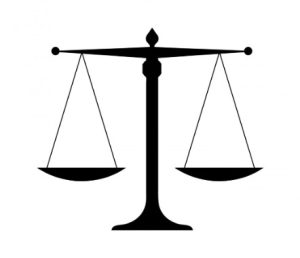Balancing Checks and Balances
Anonymous | October 20, 2022
While the US Government guides data policies and practices for private companies, their own policies and practices have caused them to fall behind with the current digital era.
In today’s digital era, there is data being collected in every interaction, whether that’s the grocery store, scrolling through Tik Tok or walking through the streets of New York. Companies collect this data to understand the patterns of the average citizen, whether that’s how often people buy Double Stuffed Oreos™, how long people spend watching the newest teenage dance trend or the amount of foot traffic that crosses 6th and 42nd at 5 PM every day. This information is used to shape the way that companies evolve their products to appeal to the “average citizen” and reach the widest range of users. In order to do this, they must collect terabytes and terabytes of data to determine how the “average citizen” acts.

Congress sets the data privacy laws that govern the way private companies can collect, share and use these terabytes and terabytes of personal data. These laws are put in place to protect US citizens and give them power on how and what information can be collected, used and shared. These rules and regulations are made to make sure companies are good data stewards to ensure their personal information is not exposed to hurt them. These damages are most commonly in the form of personal and identity theft. There are still millions of cases of hackings and data leaks every year, but the rules and regulations have forced private companies to implement safer data practices.
In recent years, there have been multiple data breaches from US Government entities, like the Department of Defense, Homeland Security, Health and Transportation. In 2015, the Office of Personnel Management was successfully targeted, which exposed personal information for 22 million federal employees. This office governs all federal employees, which means that Social Security Numbers, bank information and medical histories was captured. All of the data that these government agencies collected was exposed and left millions of citizens vulnerable to personal and identity theft. In order to limit the power and freedom of any one individual or entity, there is a system of Checks and Balances in place. I understand that and I agree, but this comes at the expense of adequate technology and infrastructure to be good data stewards. The US government values ethics and effectiveness over efficiency.
I have worked for the federal government for my whole career, so I am not writing this as an anti-government enthusiast. I have seen how internal rules and regulations have hindered the success of data scientists, like myself. We have trouble implementing safer data practices and policies because of the hoops and hurdles that must be jumped through in order to change the way things have always been done. None of these leaks were intentional and were of no fault of just one person. In my experience as a federal employee, the aggregation of many small mistakes can lead to one very large one, like a data leak. Data practices in the government are far behind that of the private industry. Again, this is not intentional or because of one person’s sly decisions. The rules and regulations that government entities have to follow are strict and tedious, with reason. Many levels of approvals and authorizations were put in place to keep the power away from one person or entity if anyone aspires to make any monumental change. This system of Checks and Balances is necessary to keep a large government functioning ethically and effectively, but it sacrifices efficiency.

While the government has valid reasons for its extensive processes, there must be change in order to quickly implement safer data practices to protect US citizens and their information. I know there is not one button to push or one lever to pull that will fix everything. It will be a slow and generational process, but essential to stay in line with the rapidly evolving digital era we are in.
While the government may be utilizing data for ethical endeavors, like trying to find the best food markets to subsidize to help low-income families, understanding the interests of children to better target teen smokers, or identifying the areas with the highest rates of homelessness, there is still a lot of data being collected every day and data practices are not updated to match the current digital era. If we cannot change culture and streamline implementation processes to balance the system of Checks and Balances, we will continue to leave US Citizens at risk of exposure.
“US Government: Deploying yesterday’s technology tomorrow”
- Anonymous Federal Employee
